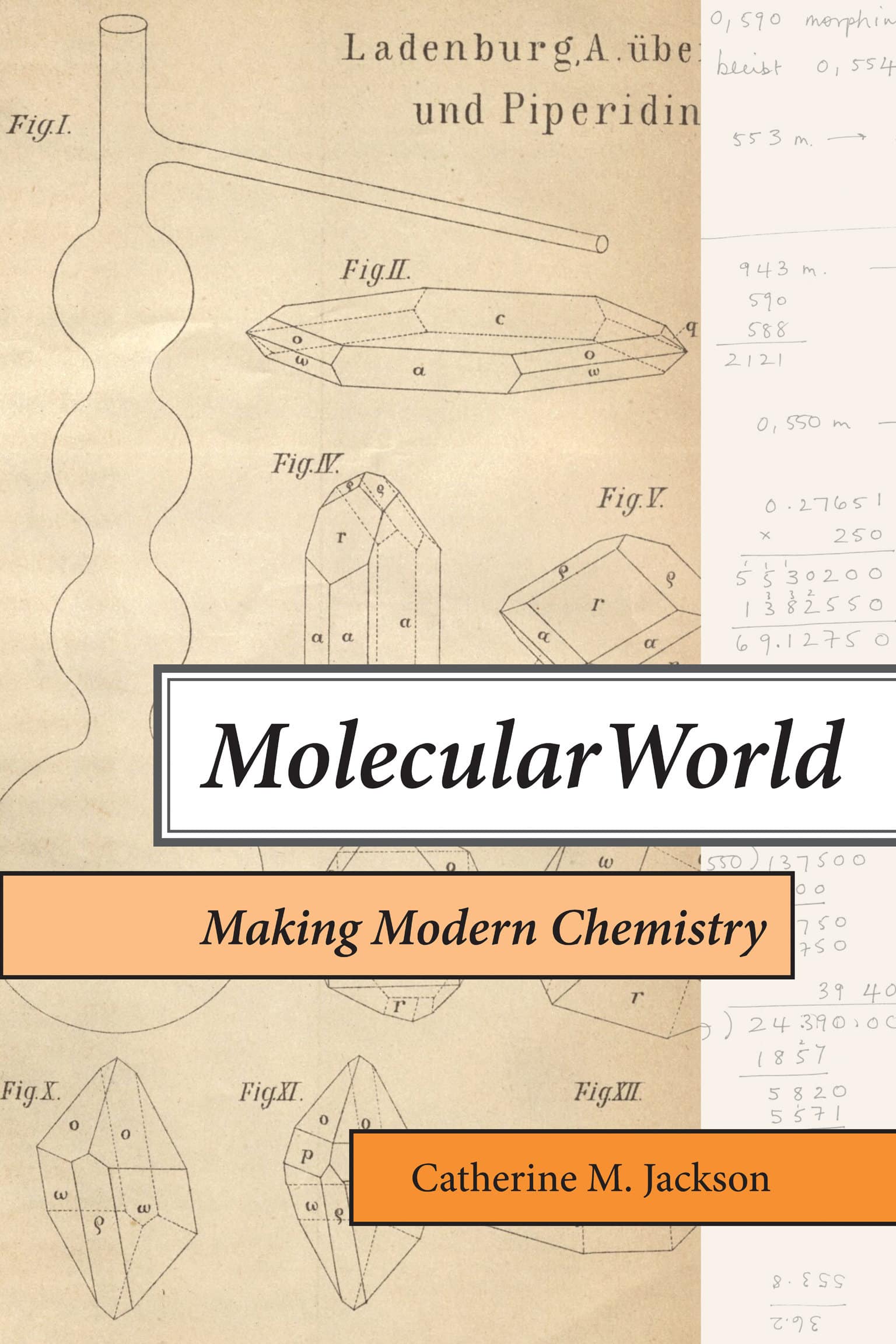Molecular World: Making Modern Chemistry
55.00 JOD
Please allow 2 – 5 weeks for delivery of this item
Description
A compelling and innovative account that reshapes our view of nineteenth-century chemistry, explaining a critical period in chemistry’s quest to understand and manipulate organic nature.According to existing histories, theory drove chemistry’s remarkable nineteenth-century development. In Molecular World, Catherine M. Jackson shows instead how novel experimental approaches combined with what she calls “laboratory reasoning” enabled chemists to bridge wet chemistry and abstract concepts and, in so doing, create the molecular world. Jackson introduces a series of practice-based breakthroughs that include chemistry’s move into lampworked glassware, the field’s turn to synthesis and subsequent struggles to characterize and differentiate the products of synthesis, and the gradual development of institutional chemical laboratories, an advance accelerated by synthesis and the dangers it introduced.Jackson’s historical reassessment emerges from the investigation of alkaloids by German chemists Justus Liebig, August Wilhelm Hofmann, and Albert Ladenburg. Stymied in his own research, Liebig steered his student Hofmann into pioneering synthesis as a new investigative method. Hofmann’s practice-based laboratory reasoning produced a major theoretical advance, but he failed to make alkaloids. That landmark fell to Ladenburg, who turned to cutting-edge theory only after his successful synthesis.In telling the story of these scientists and their peers, Jackson reveals organic synthesis as the ground chemists stood upon to forge a new relationship between experiment and theory—with far-reaching consequences for chemistry as a discipline.
Additional information
| Weight | 0.6 kg |
|---|---|
| Dimensions | 3.2 × 15.3 × 22.9 cm |
| PubliCanadation City/Country | USA |
| by | |
| Format | Paperback |
| Language | |
| Pages | 460 |
| Publisher | |
| Year Published | 2023-7-4 |
| Imprint | |
| ISBN 10 | 0262545543 |
| About The Author | Catherine M. Jackson is Associate Professor of the History of Science at the University of Oxford, Peck Fellow in History at Harris Manchester College, and Director of the Oxford Centre for the History of Science, Medicine, and Technology. |
“It will change the discussion of 19th century chemistry forever.”—Gary Patterson, Bulletin for the History of Chemistry“…many historians have stressed the role of theory in organic chemistry. But Catherine Jackson emphasizes experimental reasoning.” —Andrew Robinson, Nature“Jackson has written a history that takes into account not only instruments and experimental methods but also detailed theoretical chemical knowledge and even personal and institutional context. Many authors highlight the importance of practice in chemistry, but only a few can provide such a detailed look into laboratory reasoning that the readers can truly realize this importance for themselves.”—Sarah Hijmans, H-Net Reviews“Careful, precise, and well documented in extensive notes and a rich bibliography, this book will be valuable for decades to come."”—CHOICE |
|
| Other text | “This book is for every chemist. Seeing how greats such as Liebig, Hofmann, and Ladenburg used experimentation and simple glassware to establish understanding at the molecular level should inspire new approaches to contemporary challenges.” —Sam Gellman, Vilas Research Professor and Ralph F. Hirschmann Professor of Chemistry, University of Wisconsin-Madison “Jackson’s work is a tour de force. Using new sources, innovative methods, and original arguments to reinterpret the rise of molecular chemistry, she forces us to rethink the meaning of standards, laboratories, and chemical theory.” —Myles W. Jackson, Albers-Schönberg Professor in the History of Science, School of Historical Studies, Institute for Advanced Study, Princeton |
| Table Of Content | Acknowledgments ixArchival Sources xiiiIntroduction: Molecular World 11 Analysis Mania 192 Sure Reagent 493 Glassware Revolution 774 Capital Chemist 1055 Laboratory Reasoning 1376 Ammonia Type 1617 Chemical Identity Crisis 1918 Laboratory Landscape 2259 The Science of Synthesis 265Conclusion: Making Modern Chemistry 297Notes 311Bibliography 397Index 429 |
Only logged in customers who have purchased this product may leave a review.






Reviews
There are no reviews yet.